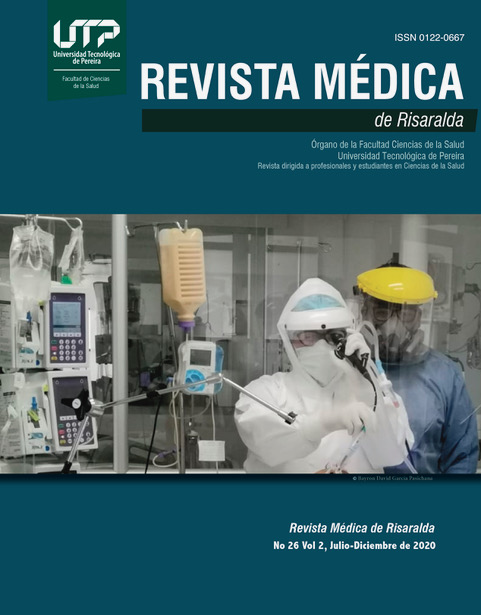Psychopathological and neuropsychological profile in the offspring of patients with bipolar disorder type I
DOI:
https://doi.org/10.22517/25395203.23161Keywords:
Bipolar Disorder, Offspring, Neuropsychology, EndophenotypeAbstract
Objective: To describe the neuropsychological characteristics of offspring children and adolescents of patients with bipolar disorder type 1 diagnosis through the application of a standardized intelligence test.
Materials and methods: In this descriptive cross-sectional observational study, the authors investigated aspects such as Intelligence Quotient, Verbal Comprehension Index, Perceptual Reasoning Index, Working Memory Index, and Processing Speed Index. Here, 30 descendants were evaluated by applying several subtests of the Wechsler Intelligence Scale for Children (WISC-IV).
Results: The Total Intelligence Quotient of 63.3% of the participants is below the average of the Normal Distribution curve according to the standardization of the intelligence test applied which classifies the tendency of the sample as a low normal average. The working memory and verbal comprehension indexes were the cognitive functions with the lowest scores in the sample.
Discussion: Our findings suggest a risk in children of patients with Bipolar Disorder type I, which may contribute to a quantitative increase of cognitive disorders, especially in terms of working memory and verbal comprehension indexes. These findings may indicate a possible endophenotype of Bipolar Disorder type I patients and their offspring in regards to the early manifestation of cognitive disorders in this risk group. These children could be a target for studies that determine prediction and thus perform an early treatment.
Downloads
Downloads
-
Vistas(Views): 689
- PDF (Español (España)) Descargas(Downloads): 469
Published
How to Cite
Issue
Section
License
Cesión de derechos y tratamiento de datos
La aceptación de un artículo para su publicación en la Revista Médica de Risaralda implica la cesión de los derechos de impresión y reproducción, por cualquier forma y medio, del autor a favor de Facultad de Ciencias de la Salud de la Universidad Tecnológica de Pereira. 1995-2018. Todos los derechos reservados ®
por parte de los autores para obtener el permiso de reproducción de sus contribuciones. La reproducción total o parcial de los trabajos aparecidos en la Revista Médica de Risaralda, debe hacerse citando la procedencia, en caso contrario, se viola los derechos reservados.
Asimismo, se entiende que los conceptos y opiniones expresados en cada trabajo son de la exclusiva responsabilidad del autor, sin responsabilizarse ni solidarizarse, necesariamente, ni la redacción, ni la editorial.
Es responsabilidad de los autores poder proporcionar a los lectores interesados copias de los datos en bruto, manuales de procedimiento, puntuaciones y, en general, material experimental relevante.
Asimismo, la Dirección de la revista garantiza el adecuado tratamiento de los datos de carácter personal



